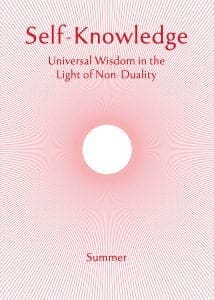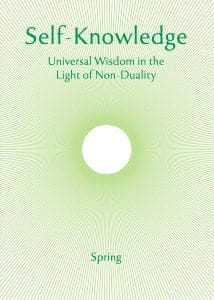No Friends or Enemies
The Thousand Teachings of Shankara, Prose Part, Section Three We want to be free. What is freedom and how to achieve it? True freedom is more than political or economic freedom. It is freedom from all the limitations imposed on us by the workings of the law of cause and effect. Ultimate freedom means being…
Read MoreIs Vedanta Dogmatic?
A CRITICISM sometimes levelled against the Vedanta (the conclusion of the Vedas—the Upanishadic non-dual teachings) is that it is dogmatic, since its starting-point is the acceptance of the Vedic texts, and the use of reason is confined to elucidating their meaning. At the beginning of his commentary on the Brahma Sutras, Shri Shankara remarks: The…
Read MoreSelf-Forgetfulness
One of the phrases that appeared in the 1960s was ‘It blew my mind’. It was particularly associated with the psychological effects of hallucinogenic drugs. The phrase is still used, but its meaning has softened. Nowadays, we may hear it applied to any experience that makes a deep, pleasant or powerful impression on our mind,…
Read MoreThe Aitareya Upanishad
The Upanishads contain statements that contradict the duality of everyday experience and indicate, as a higher truth, the state of non-duality. This applies to the apparent differences at all levels: differences of qualities which distinguish one thing from another; differences of metaphysical value or status, as between the divine and the human; divisions in the…
Read MoreMeditation Practice
In meditation we deliberately turn our attention away from the outer world towards the deeper levels of our mind. Within us all there is a centre of peace, strength, purity and fulfilment. Meditation is a means of uncovering this level of our being. This innermost realm has its source in the supreme Truth. It is…
Read MoreHow Can Non-duality Help Me Now?
Non-duality can help us now by showing where to find four precious and life-giving resources. These are: a refuge, a foundation, a direction and a purpose. Where do these boons come from? Their source is Reality itself, non-dual, one without a second. This source is trans-cendental, but in the world of relativity we encounter it…
Read MoreCreating the Valuable
Amidst the religious ferment of 17th century Europe, new sects arose, and in some instances men and women of eminence emerged to give a lead to the people. The Quakers, or ‘Society of Friends’, was one such grouping, and Isaac Penington, the subject of this article, was one of the Society’s leading lights. Isaac was…
Read MoreThe Humorous Dimension
The scriptures of the world are not generally thought of as humorous, either in the teachings they impart or the narratives and parables they unfold. On the contrary, they are more likely to be revered in a spirit of seriousness and solemnity. Yet the sense of humour is a part of human nature, and it…
Read MoreThe Advaita and Life
Advaita (non-dualism) is a system of thought and an art of living. It has an ideal, a system of logic which examines the ideal, and a discipline which is essential to the realisation of the ideal. Its philosophy in the form of speculative thinking is not only profound, satisfying all the demands of the intellect,…
Read MoreThe Real Rest
To the seeker of wisdom, the word ‘rest’ has a deep and growing meaning. The familiar meaning of rest as cessation of activity in order to recover our strength and freshness is not discarded, but the rest promised is shown to have a deeper source—a source related to the ultimate truth of what we are.…
Read More


